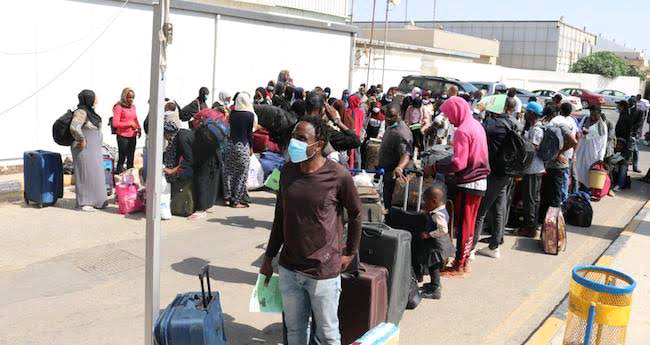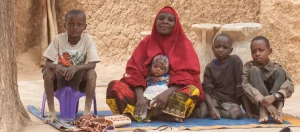
The Federal Government, in collaboration with the International Organisation for Migration (IOM), has successfully evacuated 327 stranded Nigerians as well as those released from detention facilities in Tripoli, Libya.
Ambassador Kabiru Musa, Chargé D’Affaires En Titre of the Nigerian Mission in Libya, revealed this in a statement.
Musa explained that 165 of the evacuees were Nigerians freed from detention facilities in Tripoli, while the rest were individuals stranded in the country.
He noted that the evacuees were transported in two groups from Tripoli International Airport and Benina International Airport, Benghazi, on Tuesday evening.
Musa added that the evacuees are expected to arrive at Murtala Muhammed International Airport, Lagos, on the same night.
Musa gave details of the evacuation situation saying, “Today, the Federal Government, in collaboration with the International Organisation for Migration (IOM), conducted another evacuation exercise, repatriating 327 stranded Nigerians in two different categories from Libya.
“The category of 165 evacuees who were airlifted from Tripoli International Airport, Libya, included those released from detention facilities, and they included 108 women, 52 men, four infants, and one child.
“The other 162 evacuees included 95 women, 30 men, 19 infants, and 18 children, who were stranded in Libya, and they departed for Nigeria from the Benina International Airport in Benghazi, Libya.
“Both batches of evacuees are expected to arrive at the Murtala Mohammed International Airport, Lagos on the same day.
“This is the first evacuation of the year; we anticipate that more evacuation exercises will be carried out in the year, in fulfillment of the Federal Government’s pledge not to abandon any of its citizens abroad”.
Musa expressed gratitude to the Libyan authorities for their assistance in facilitating the release of individuals from detention facilities on behalf of the Federal Government.
He also extended appreciation to the International Organization for Migration (IOM) for its ongoing support through the Voluntary Humanitarian Repatriation (VHR) program.








